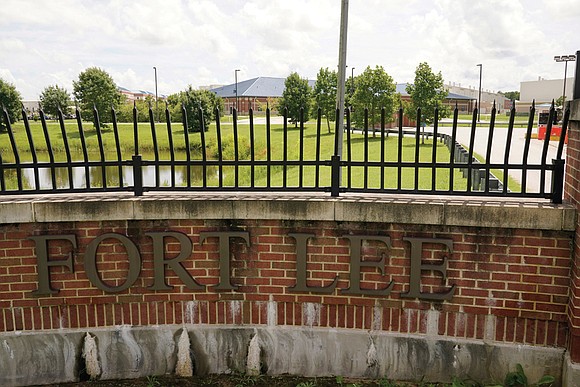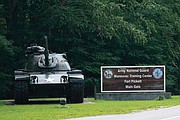New names recommended for Fort Lee, Fort A.P. Hill and Fort Pickett Army bases
Jeremy M. Lazarus | 5/26/2022, 6 p.m.
The names of slavery-defending Confederate military leaders who fought to destroy the U.S. government could finally start disappearing from military installations.
The U.S. Naming Commission that Congress created last year took the first step Tuesday in recommending new names for nine Army bases, including three in Virginia that bear the names of white-supremacist rebel generals, Fort A.P. Hill, Fort Lee and Fort Pickett.
Fort A.P. Hill’s new name will honor pioneering female surgeon, Dr. Mary Edwards Walker, who provided life-saving care to soldiers during the Civil War while battling discrimination due to her sex and later was awarded the Medal of Honor for her service after being denied a pension because she was a woman.
Fort Lee in Prince George County will be renamed for two Black officers, retired Lt. Gen. Arthur J. Gregg, regarded as an Army superstar in logistics, and the late Lt. Col. Charity Adams, the first Black female Army commander who led the World War II unit that distributed mail to and from seven million American soldiers in Europe.
Fort Pickett in Nottoway County, headquarters of the Virginia National Guard, is to be renamed for Tech Sgt. Van T. Barfoot, who won the Medal of Honor during World War II for single-handedly destroying three German machine gun nests and capturing 17 enemy soldiers, routing three German tanks and saving the lives of two wounded members of his unit in action in Italy.
“Our commission sought to find names that would be inspirational to the soldiers and civilians who serve on our Army posts and to the communities who support them,” stated retired Navy Adm. Michelle Howard, the commission’s chair, in announcing the recommendations.
U.S. Rep. A. Donald McEachin, D-4th, who advocated to have Fort Lee, a supply and logistics training center, renamed for Gen. Gregg, praised the commission for including him and Lt. Col. Adams in its recommendation, calling it “a historic moment.”
“For far too long, the heroism of Black service members has been inadequately recognized or celebrated,” Rep. McEachin stated. “Today’s announcement honors Lt. Gen. Gregg and Lt. Col. Adams’ lives of service and sacrifice and pays homage to the incredible dedication men and women of color have shown serving our nation” since the Revolutionary War.
The commission will send the recommendations to Congress and the Defense Department, which has until Jan. 1, 2024, to implement the recommendations.
The recommendations also call for renaming:
Fort Rucker in Alabama for legendary Army pilot Michael J. Novosel Sr.; Fort Benning in Georgia for legendary Vietnam War Lt. Gen. Harold G. “Hal” Moore Jr. and his wife, Julia Moore; Fort Gordon also in Georgia for World War II Army Gen. and former President Dwight D. Eisenhower; and Fort Bragg in North Carolina as Fort Liberty.
Also, Fort Polk in Louisiana for Black Army Sgt. William Henry Johnson, a Medal of Honor recipient for his actions in World War I; and Fort Hood in Texas for the first Hispanic four-star general, Richard E. Cavazos.
The commission received 34,000 recommendations and assembled a list of 87 finalists from which the final recommendations were made.
This is just an initial step for the commission, which has identified 754 Confederate-named streets, fields, barracks, fire stations and other installations on Defense Department property.
Fort Pickett, named for Confederate Gen. George Pickett of the failed charge at Gettysburg, alone has at least 30 separate streets, barracks and other installations named for other Confederates that the commission could seek to replace.
U.S. Rep. Adam Smith, D-Washington, chair of the House Armed Services Committee described the new names for the nine bases as “excellent choices to honor and celebrate the strength, diversity and values of the service members and their families who are a cornerstone of our democracy.”








